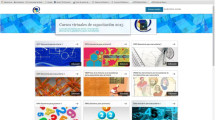Abstract
Modern fast-paced technological world poses new requirement to graduates and their qualification. The educational systems of all countries accept the challenge by the national labour market. Tertiary education systems are forced to adapt to the requirements from employers. They are always looking for ways to accelerate students deepening their knowledge, sometimes by reducing their erudition and outlook. Thus, education is often focused on a particular client (employer, company, etc.). Russian universities resist this tendency. Wide basic training allows graduates to adapt quickly to any developing technologies and changing conditions of the labour market. At the same time, graduates have very low practical skills and employers need to retrain specialists. Nowadays, the market has changed. It requires graduates who are ready to use their skills immediately. The Russian education system is forced to innovate and use new educational technologies to correspond to the new economic conditions. Despite this, it is also very important to save the traditions of the Russian school. In this paper we research students’ attitude towards blended learning, based on survey results. B-learning is a new promising approach to studying Mathematics with continuous access to the course material from any device with an Internet connection. It is concluded that b-learning is currently the most preferable form of studying. We discuss the advantages of b-learning over the traditional forms and over pure e-learning. Grade ratings of Mathematics students that use b-learning tend to be higher, due to the fact that b-learning facilitates regular and systematic work during semester. Additionally, b-learning increases transparency in evaluation of students’ work. We establish that elements of e-learning in mathematical disciplines have their own peculiarities in comparison to other sciences, especially humanities.
Access this chapter
Tax calculation will be finalised at checkout
Purchases are for personal use only
Similar content being viewed by others
References
Rebrim, O., Sholina, I., Syskov, A.: Smeshanoe Obuchenie. Vischie obrazovanie v Rossii, vol 8, pp. 68–72 (2005). (in Russian)
Kyei-Blankson, L., Ntuli, E.: Practical Applications and Experiences in K-20 Blended Learning Environments. IGI Global, Hershey (2013)
Ellis, R.A., Calvo, R.A.: Minimum indicators to assure quality of LMS-supported blended learning. Educ. Technol. Soc. 10(2), 60–70 (2007)
Ginns, P., Ellis, R.: Quality in blended learning: exploring the relationships between on-line and face-to-face teaching and learning. Int. High. Educ. 10, 53–64 (2007)
Monteiro, A., Leite, C., Lima, L.: Quality of blended learning within the scope of the bologna process. Turk. Online J. Educ. Technol. 12(1), 108–118 (2013)
Timkin, C.: Motivaciya Studenta v Modeli Smeshannogo Obycheniya. Vischie obrazovanie v Rossii, vol 9, pp. 116–119 (2008). (in Russian)
Efremova, O.N., Plotnikova, I.V., Ustyuzhanina, A.K.: Forming linguistic competence of foreign students at the preparatory department of a Technical University. Procedia Soc. Behav. Sci. 215, 72–78 (2015)
Sherstneva, A.I., Imas, O.N., Galanova, N., Yu., Tran V.T.: Influence of evaluation system on effectiveness of foreign students’ mathematical education. Procedia Soc. Behav. Sci. 215, 181–184 (2015)
Mnenie studentov TPU ochnoi formy obucheniya ob ispolzovanii elektronnyh kursov v uchebnom processe. Informacionno-analiticheskaya zapiska. TPU (2015). unpublished (in Russian)
Yanuschik, O.V., Pakhomova, E.G., Batbold, K.: e-learning as a way to improve the quality of educational for international students. Procedia Soc. Behav. Sci. Mater. Sci. Eng. 215, 147–155 (2015)
Irina, U., Elena, L.: Performance criteria of learning math tests. In: International Conference on Interactive Collaborative Learning (ICL), Florence, Italy, 20–24 September 2015, pp. 686–689 (2015)
Imas, O.N., Kaminskaya, V.S, Sherstneva A.I.: Teaching math through blended learning. In: International conference on interactive collaborative learning (ICL), Florence, Italy, 20–24 September 2015, pp. 511–514 (2015)
Wen-Shan, T., Takumi, K., Chang-Hui, H.: Effect of integrating blended teaching into mathematics learning for junior high school students. J. Comput. Appl. Sci. Educ. 1(2), 39–57 (2014)
Lobregat-Gómez, N., Mínguez, F., Roselló, M.-D., Sánchez R., Luis, M.: Blended learning activities development. In: International Conference on Interactive Collaborative Learning (ICL), Florence, Italy, 20–24 September 2015, pp. 79–81 (2015)
Author information
Authors and Affiliations
Corresponding author
Editor information
Editors and Affiliations
Rights and permissions
Copyright information
© 2017 Springer International Publishing AG
About this paper
Cite this paper
Fedorov, K.B., Imas, O.N., Sherstneva, A.I., Kriviakov, S.V. (2017). Blended Learning and Fundamental Disciplines. In: Auer, M., Guralnick, D., Uhomoibhi, J. (eds) Interactive Collaborative Learning. ICL 2016. Advances in Intelligent Systems and Computing, vol 545. Springer, Cham. https://doi.org/10.1007/978-3-319-50340-0_11
Download citation
DOI: https://doi.org/10.1007/978-3-319-50340-0_11
Published:
Publisher Name: Springer, Cham
Print ISBN: 978-3-319-50339-4
Online ISBN: 978-3-319-50340-0
eBook Packages: EngineeringEngineering (R0)




